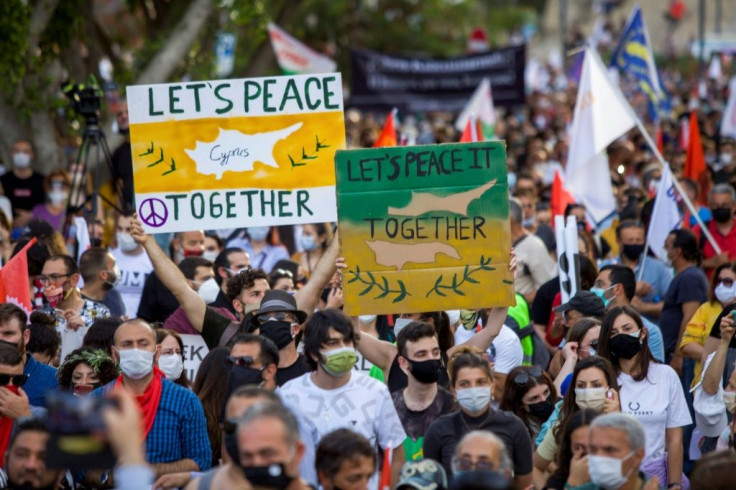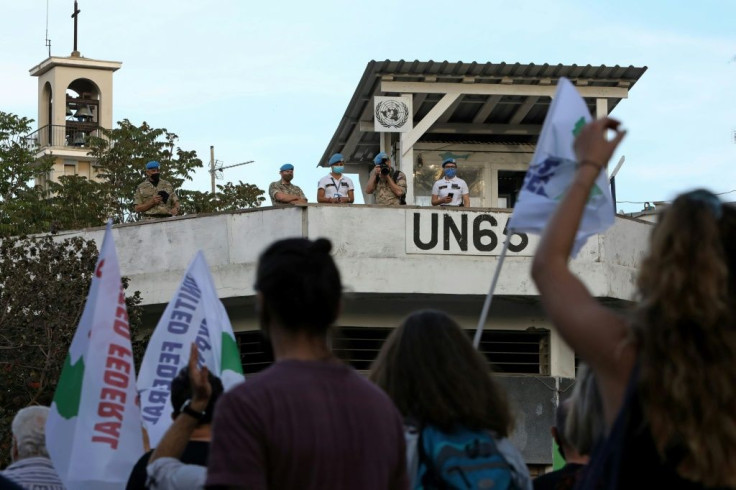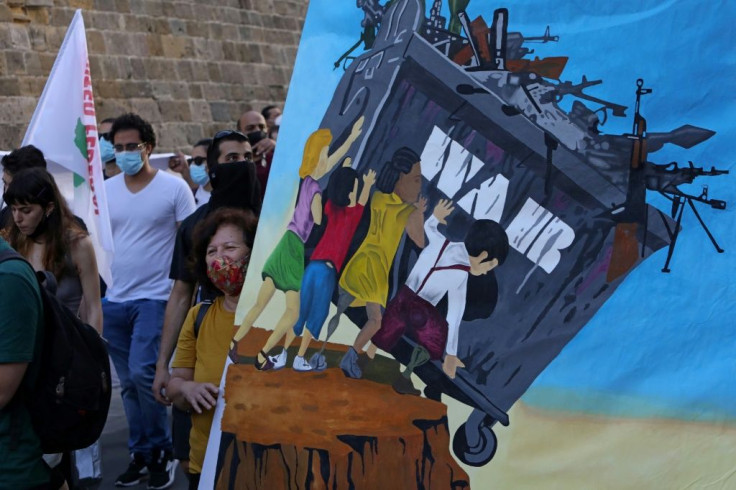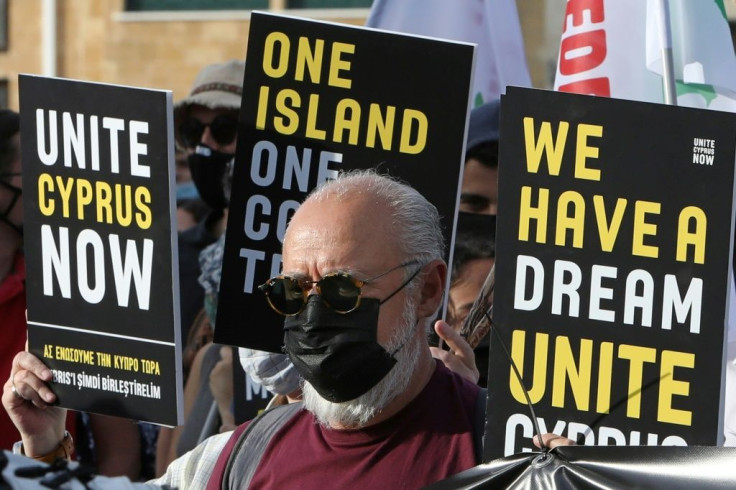'Common Ground' At Premium As Cyprus Rivals Head To Geneva
Four years after their last peace talks failed, rival Cypriot leaders will meet in Switzerland from Tuesday to explore elusive "common ground" on the divided Mediterranean island.
"We go to Geneva... steadfastly committed to resuming negotiations for reunifying Cyprus in a bi-zonal bi-communal federation," said Nikos Christodoulides, foreign minister of the Greek Cypriot-run Republic of Cyprus, an EU member.
That is in line with UN resolutions, international and EU law.
But his counterpart in the breakaway Turkish Republic of Northern Cyprus (TRNC) -- recognised only by Ankara -- told AFP last month that "there is no common ground".

"The issue is 'one island, two states'," Tahsin Ertugruloglu said.
Cyprus has been divided since 1974, when Turkey occupied its northern third in response to a coup orchestrated by an Athens-backed junta seeking to annex the island to Greece.
The Turkish-occupied zone later declared independence, but remains heavily dependent on Ankara.
On Saturday, Cypriots protested on both sides of the divided capital Nicosia to demand a settlement. Some brandished placards calling for peace and reunification.
The United Nations is trying to mediate a deal, almost six decades since it first deployed peacekeepers following intercommunal clashes in December 1963.

The UN mission's mandate was expanded after the 1974 conflict, and to this day a buffer zone divides the island, carving through Nicosia -- the world's last divided capital.
Pro-reunification Turkish Cypriot leader Mustafa Akinci was ousted in polls last October by hardliner Ersin Tatar, a protege of Turkey's President Recep Tayyip Erdogan.
On Saturday, Tatar urged the international community to "acknowledge the existence" of two states in Cyprus.

"We are going to Geneva with a new vision for Cyprus, one based on the realities on the island," he said in a statement.
"There are two peoples with distinct national identities, running their own affairs separately."
Tatar is scheduled to meet with Erdogan in Ankara on Monday before the start of talks in Geneva the following day.
UN Secretary-General Antonio Guterres, who will oversee the three-day meeting, wants to "show that he has exhausted all options", said Kemal Baykalli, a Turkish Cypriot analyst and UniteCyprusNow activist.
He said

Guterres "needs to hear officially that the two sides will not find an agreement within the framework" currently on the table -- reunification in a federation.
July 2017 talks in Switzerland on that basis collapsed over the withdrawal of tens of thousands of Turkish troops and over Ankara's status as a guarantor power.
Turkey has also been invited to the latest talks, along with Greece and Britain, the two other guarantors of the island's 1960 independence.
The EU will only send two junior officials who will not participate directly or even formally observe, according to the Cyprus Mail daily on Sunday.
Ankara has strongly opposed the European Union's attendance.
Since the last talks floundered, several factors have added to the traditional sticking points over security guarantees, political equality, territorial adjustments and refugees' property rights.
The term "decentralised federation" has found its way into Greek Cypriot leader Nicos Anastasiades' lexicon, something his critics call a "confederation in disguise" as sought by the Turkish Cypriots.
Giannis Ioannou, a journalist and founder of the think-tank Geopolitical Cyprus, said "Turkey has changed the paradigm," notably by exploring for gas deposits in waters claimed by Cyprus and Greece.
Ankara has also angered Greek Cypriots by reopening Varosha, a once glamorous seaside resort that became a ghost town fenced off by Turkey's military ever since the 1974 invasion.
The "Cyprus problem is now part of a broader geopolitical context" of "future relations between the EU and Turkey", and on gas in the eastern Mediterranean, said Ioannou.
Cyprus remains "a small ship in the game of the Big Powers", at the expense of Cypriots on both sides of the divide, said Baykalli.
"Turkey could use the discussions to win certain issues... in exchange for compromises in Cyprus," he said.
Or it could bolster its stand within the framework of Ankara's "blue homeland" ambitions, aimed at expanding Turkish influence.
In Cyprus, there is little optimism.
The Covid-19 crisis has brought the TRNC's heavily Turkey-dependent economy to its knees, making it difficult to challenge the "motherland".
In the south, corruption scandals such as the "Golden Passport" fiasco have reinforced distrust of the political class, which also stands accused of mismanaging the pandemic.
The goal in Geneva is "to open a breach... It will be an intermediate step, the parties could agree to continue discussions", said Ioannou.
Baykalli said it would also "definitively turn the page on Crans-Montana".
© Copyright AFP {{Year}}. All rights reserved.





















